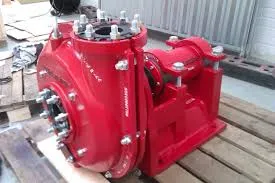Frisian
- Afrikaans
- Albanian
- Amharic
- Arabic
- Armenian
- Azerbaijani
- Basque
- Belarusian
- Bengali
- Bosnian
- Bulgarian
- Catalan
- Cebuano
- Corsican
- Croatian
- Czech
- Danish
- Dutch
- English
- Esperanto
- Estonian
- Finnish
- French
- Frisian
- Galician
- Georgian
- German
- Greek
- Gujarati
- Haitian Creole
- hausa
- hawaiian
- Hebrew
- Hindi
- Miao
- Hungarian
- Icelandic
- igbo
- Indonesian
- irish
- Italian
- Japanese
- Javanese
- Kannada
- kazakh
- Khmer
- Rwandese
- Korean
- Kurdish
- Kyrgyz
- Lao
- Latin
- Latvian
- Lithuanian
- Luxembourgish
- Macedonian
- Malgashi
- Malay
- Malayalam
- Maltese
- Maori
- Marathi
- Mongolian
- Myanmar
- Nepali
- Norwegian
- Norwegian
- Occitan
- Pashto
- Persian
- Polish
- Portuguese
- Punjabi
- Romanian
- Russian
- Samoan
- Scottish Gaelic
- Serbian
- Sesotho
- Shona
- Sindhi
- Sinhala
- Slovak
- Slovenian
- Somali
- Spanish
- Sundanese
- Swahili
- Swedish
- Tagalog
- Tajik
- Tamil
- Tatar
- Telugu
- Thai
- Turkish
- Turkmen
- Ukrainian
- Urdu
- Uighur
- Uzbek
- Vietnamese
- Welsh
- Bantu
- Yiddish
- Yoruba
- Zulu
Telephone: +86 13120555503
Email: frank@cypump.com
Nov . 28, 2024 00:00 Back to list
Efficient Water Pump Solutions for Pipeline Applications and Management
The Importance of Pipeline Water Pumps in Modern Infrastructure
In an era where efficient water management is pivotal, pipeline water pumps play a vital role in ensuring the delivery and distribution of water across various landscapes, from urban environments to agricultural fields. These pumps are designed to facilitate the movement of water along pipelines, optimizing the supply chain of one of our most essential resources. This article delves into the significance of pipeline water pumps, their designs, applications, and the future of this technology.
Functionality and Design of Pipeline Water Pumps
At their core, pipeline water pumps are mechanical devices that move water from one location to another through a system of pipes. They operate on several principles, depending on the type of pump used—centrifugal pumps and positive displacement pumps are among the most common designs.
Centrifugal pumps utilize rotational energy to propel water, making them suitable for high-flow applications. They work by converting rotational energy into kinetic energy, which increases the fluid's velocity and moves it through the pipeline. On the other hand, positive displacement pumps operate by trapping a fixed amount of water and forcing it through the pipeline. This design is particularly effective for high-pressure applications and for situations where precise flow control is required.
Applications of Pipeline Water Pumps
The applications of pipeline water pumps are vast and varied. In urban areas, these pumps are crucial for municipal water systems, providing potable water to households and businesses. They help maintain pressure levels in the water distribution network, ensuring that water flows smoothly, even in high-demand situations.
pipeline water pump

In agriculture, pipeline water pumps are indispensable for irrigation systems
. They help draw water from rivers, lakes, or underground sources, distributing it efficiently across expansive fields. This capability is particularly important in regions susceptible to drought, where optimized irrigation can significantly enhance crop yields.Industrial applications are another significant domain for pipeline water pumps. Many manufacturing processes require water for cooling, cleaning, or as a raw material. In these contexts, efficient pumping systems can drastically reduce operational costs while maintaining the necessary supply for industrial activities.
Environmental Considerations
As we look towards the future, it is crucial to consider the environmental impact of pipeline water pumps. Water management is intertwined with ecological sustainability; therefore, innovations in pump technology should focus on energy efficiency and minimal disruption to local ecosystems. Solar-powered pumps, for instance, represent a breakthrough in sustainable water management. These systems harness solar energy to operate, which can reduce dependency on fossil fuels and minimize greenhouse gas emissions.
Additionally, the integration of smart technology into pipeline water pumps can optimize performance and monitor resource usage in real time. Smart pumps can adjust their operations based on demand, significantly reducing energy consumption and waste. Moreover, the data collected by these systems can inform better maintenance practices, extending the lifespan of the equipment and reducing the frequency of replacements.
Conclusion
Pipeline water pumps are essential components of modern water management systems, touching nearly every aspect of our daily lives—be it through the provision of drinking water, irrigation for crops, or supporting industrial processes. With ongoing advancements in technology, these pumps are becoming more efficient, environmentally friendly, and integrated into smart infrastructure systems. As global demand for water continues to rise amid changing climatic conditions, the role of pipeline water pumps will only grow more critical. Investing in new technologies and sustainable practices will ensure that we meet our water needs responsibly and efficiently, safeguarding this vital resource for future generations.
-
Heavy-Duty Mining Sludge Pumps - Wear-Resistant Slurry Handling
NewsAug.02,2025
-
Horizontal Split Case Pump with GPT-4 Turbo | High Efficiency
NewsAug.01,2025
-
ISG Series Pipeline Pump - Chi Yuan Pumps | High Efficiency, Durable Design
NewsAug.01,2025
-
Advanced Flue Gas Desulfurization Pump with GPT-4 Turbo | Durable & Efficient
NewsJul.31,2025
-
ISG Series Vertical Pipeline Pump - Chi Yuan Pumps | Advanced Hydraulic Design&Durable Construction
NewsJul.31,2025
-
ISG Series Vertical Pipeline Pump - Chi Yuan Pumps | Energy Efficient & Low Noise
NewsJul.31,2025










